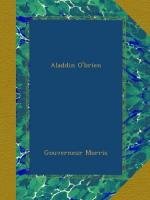Hannibal tore open the envelop and read:
Dear old Bul :I can’t stand it any longer, but you’ll try and not be mad with me for running off and leaving you to keep up the old place alone, and damn it, Bul, two of us ought to go anyway . . . .
The letter ran on for a little in the same strain. Hannibal put the letter in his pocket, and sat down at his brother’s desk.
“It will kill the old man if we all go,” he said. “And of all three I’m the one with the best rights to go and get shot.”
He took from somewhere in his clothes a little gold locket, flat and plain. Each of the St. John boys had carried one since their mother’s death. Facing her picture each had had engraved the motto which he had chosen for himself to be his watchword in life. In John’s locket was engraved, “In fortis vinces”; in Hamilton’s, “Deo volente”; and in Hannibal’s, “Carpe diem.” But in Hannibal’s locket there was another picture besides that of his mother. He opened the locket with his thumb-nails and laid it on the desk before him. Presently his eyes dimmed, and he looked beyond the locket.
Hamilton St. John’s ink-well was a globe of glass, with a hole like a thimble in the top to contain ink. Hannibal found himself looking at this, and noting the perfect miniature reproduction of the big calendar on the wall, as it was refracted by the glass. With his thoughts far away, his eyes continued to look at the neat little curly calendar in the ink-well. Presently it seemed to him that it was not a calendar at all, but just a patch of bright green color—a patch of bright green that became grass, an acre of it, a ten-acre field, a great field gay with trampled flowers, rolling hills, woods, meadows, fences, streams. Then he saw, lying thickly over a fair region, broken guns, exploded cannons, torn flags, horses and men contorted and sprung in death; everywhere death and demolition. He wandered over the field and came presently upon himself, scorched, mangled, and dead under the wheel of a cannon.
After a little it seemed to him that the field of battle shrank until it became again the calendar. But there was something odd about that calendar; the dates were queer. It read July, right enough; but this was the year 1861, whereas the calendar bore the date 1863. And why was there a cross to mark the third day of July? Hannibal came to with a shock; but he could have sworn that he had not been asleep.
“God is very—very good!” he said solemnly.
Then he opened his pen-knife, and scratched a deep line of erasure through the “Carpe diem” in his locket, and underneath, cutting with great pains, he inserted a date, “July 3, 1863,” and the words “Nunc dimittis.” Below that he cut “Te Deum laudamus.”
He looked once more at the picture of his mother and at the picture that was not of his mother, shut the little gold case, and put it back in his pocket.




